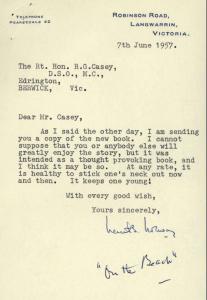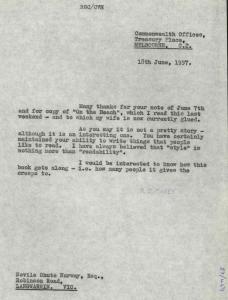In 1959 Hollywood came to Australia. Newspapers were abuzz with the arrival of showbiz giants: the great Gregory Peck, iconic showman Fred Astaire, teen idol Anthony Perkins, and glamorous brunette bombshell Ava Gardner.
They were in Australia, Melbourne specifically, to film On the beach. Based on Nevil Shute's acclaimed novel, it would be one of the first movies to deal head on with the prospect of complete nuclear apocalypse.
The stars descend
The Sydney Morning Herald reported that, on her arrival, Ava Gardner had scornfully described Melbourne as 'the perfect place to make a film about the end of the world.' This now-famous quote was made-up – the satirical invention of journalist Neil Jillett. Though it wasn't hard to believe. For these stars from the other side of the world, Australia was a long way from home.
Their arrival in Australia is documented in National Archives' passenger arrival records. In 1959, like now, new arrivals to Australia had to fill in an incoming passenger arrival card with their name, intended length and purpose of stay, and other details. Even better for classic Hollywood fans, these ones also include photos!
Peck, Astaire, Perkins and Gardner, as well as co-star Donna Anderson, are all represented. It's refreshing to see that even famous actors can have bad passport photos. Gregory Peck's mugshot is quite unflattering, though Astaire looks distinguished. We don't know how Ava Gardner looked in hers – her photo is missing. Pinched by a starstruck customs officer?
All 5 actors state their purpose in Australia (acting), and give their intended Australian addresses as care of Stanley Kramer Productions. American director Kramer both produced and directed the film.
Filming started on 15 January, with newspapers and magazines keeping up a steady stream of breathless star-spotting. The Royal Australian Navy cooperated with the production, allowing the use of HMAS Melbourne, Williamstown Naval Dockyard, and even letting some men serve as extras. Then, after just over 2 months, On the beach wrapped on 27 March.














